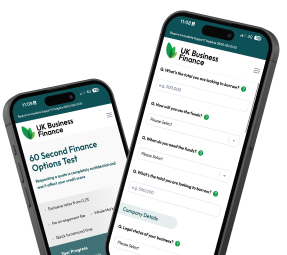
What is the difference between a fixed and floating charge?

When taking out borrowing to assist with your company’s finances, you may be asked to secure this loan by allowing the lending company to register a charge over an asset or asset class. This means that should your company be unable to pay back what you have borrowed, the lender can seize the asset in order to recoup this money.
Fixed v floating charges
Lenders can register either a fixed or a floating charge depending on the type of borrowing being advanced. Both fixed and floating charge holders are classed as secured lenders; however, there is a difference between the two types of charges which impacts the priority order of receiving payment should the borrowing company enter liquidation.
Fixed charges
With a fixed charge, the borrowing is secured against one or several specific assets; in the event of the borrower defaulting on the terms of the agreement, the asset will be seized in order to pay back the loan. One of the most common types of fixed charge borrowing is taking out a mortgage. In this instance the loan is secured against the property, and should the borrower fail to keep up with the agreed repayments, the bank will take charge of the property and look to sell it in order to recoup the outstanding monies. Fixed charges can be taken out on a variety of other asset classes including:
- Land
- Vehicles
- Plant and machinery
Solutions Based Funding Options
- UK's Leading Business Funders
- Free Brokerage Service
- Full Market Access
Floating charges
Floating charges are different. This charge is attached to assets which can be sold, traded, and disposed of in the course of the business’s operations, such as stock, without obtaining consent from the lender. Due to this a floating charge will encompass both current and future assets to take into account those which are sold and also those which are acquired by the business.
As the name suggests, this type of charge ‘floats’ over the assets, but the company is free to use them in the course of their trading. It is only if the company runs into financial difficulties, enters liquidation, or fails to keep up with the agreed repayments on the borrowing that the charge is said to ‘crystallise’; this is known as a trigger event. At this point the company is no longer allowed to dispose of any of the assets covered by the floating charge.
In the event of insolvency
Should your company enter liquidation, there is a designated order when it comes to your outstanding creditors receiving payment. As both fixed and floating charge holders are classed as secured lenders, they will take priority over unsecured creditors who must wait until all other costs and creditors have been paid.
Those holding a fixed charge will be first in line for payment, and will receive their money through the sale of the asset they are holding a charge over. For floating charge holders, they must wait until fixed charge holders, preferential creditors (typically employees), and the insolvency practitioner have been paid before they can take a share of the remaining funds.
If you want to learn more about fixed and floating charges, and how these are treated in the event of your company entering a liquidation procedure, contact the experts at BTG Begbies Traynor today on 0800 063 9221. You can arrange a same-day consultation with a licensed insolvency practitioner who can help you clarify your position and understand your options.
More BTG Begbies Traynor Articles
Contact the team
Key Contact

You're in Safe Hands
- 35+ Years Experience
- 100+ UK Offices
- Confidential director support
- Insolvency market leader
Article Archive
Article Categories



